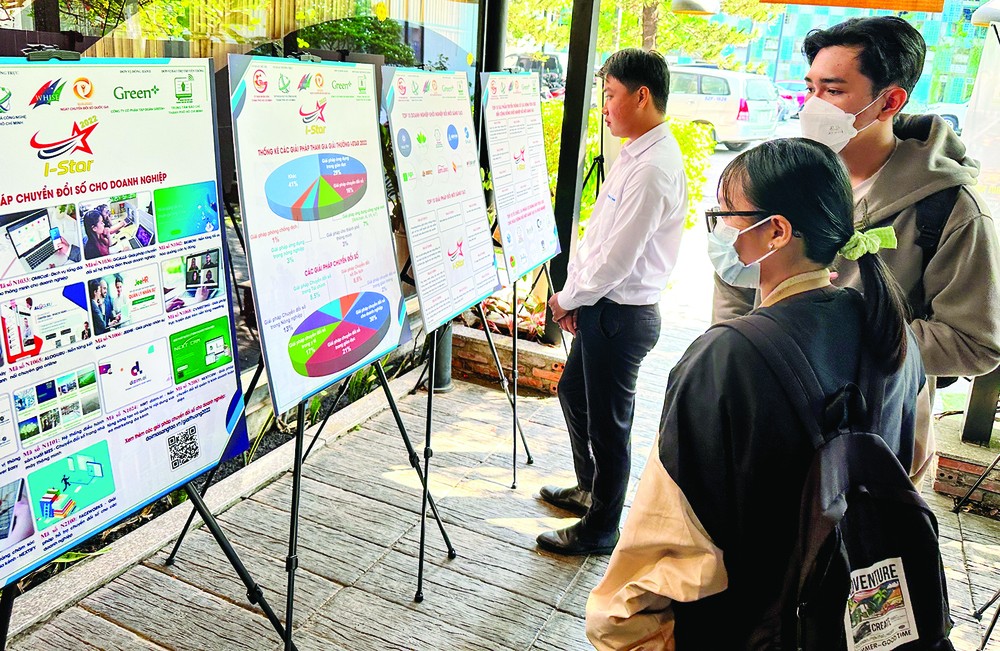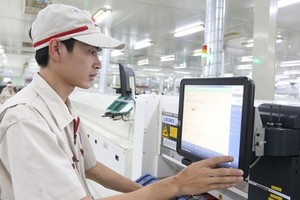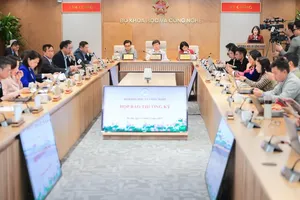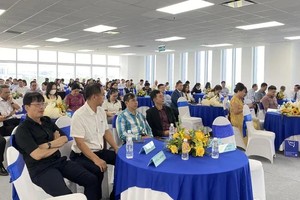
Therefore, it is essential for the ecosystem to be underpinned by a favorable legal framework and specific policies, supported at both central and local levels, and capable of mobilizing resources domestically and internationally.
Institutional breakthrough needed
Presently, the country has nearly 200 shared workspaces, around 70 business incubators, 30 business promotion organizations, and 108 venture capital funds. However, the most critical support for innovation startups lies in a favorable legal framework and incentivizing policies, appropriate financial resources, and a strong interconnection between business sectors and universities and research institutions.
Mr. Le Duc Vien, Director of the Department of Science and Technology in Da Nang, points out that there is currently no specific and robust mechanism or policy for innovation startups, indicating a significant loophole. According to him, it is crucial to implement policies like corporate income tax exemptions and incentives for personal income tax on activities related to the trading and transfer of capital within the innovation startup sector. Additionally, there is a need for preferential policies concerning income derived from salaries, remuneration for experts and scientists, individuals with special talents, and innovation entrepreneurs working within startup enterprises or science-technology organizations.
In reality, the recent activities of innovation startups have generated practical needs that call for intervention and support from the Government. First and foremost, it is imperative to refine the legal framework.
Of utmost importance is the financial assistance that startup enterprises require from the budget for the operations of supporting organizations and innovation startup centers. This is particularly crucial for centers located in public areas during the initial stages, offering support for initial resources (infrastructure, facilities, technology, tools, data, and accounts), human resources, operations (salaries and apparatus operation), and specific tasks (research, testing, organizing conferences, training, and capacity building) throughout various stages with financial mechanisms tailored specifically for innovation startup enterprises.
Unrestricted by administrative apparatus
Dr. Tran Du Lich, Member of the Economic Advisory Group to the Prime Minister cum Leader of the project "Transforming Da Nang into the national startup innovation hub in the Central region," highlights that the major hindrance in contemporary startup development lies in the mindset of "having to establish a legal framework before proceeding." In contrast, the realm of innovation startup should be driven by a mindset that is not constrained by administrative apparatus.
"The Singaporean government utilizes the 'sandbox' method to 'enclose the grains of sand' - startup enterprises introducing entirely new products, solutions, and technologies are confined within an experimental framework with short-term, groundbreaking policies tailored exclusively to this context, within a specified timeframe and for a specific target audience. These 'sandboxes' serve as a groundwork for policymakers to research, experiment, and progressively fine-tune policies to align with emerging developments," explained Dr. Tran Du Lich.
In a context where legal regulations have not kept pace with the emergence of new business and technology models, countries around the world are adopting innovative frameworks such as sandbox, innovation zones, and open innovation to attract investment and promote innovation startup.
Sharing the same opinion, Mr. Pham Hong Quat, Director of the Technology Entrepreneurship and Commercialization Development under the Ministry of Science and Technology, suggests: "The government and major corporations should play a guiding and commissioning role, acting as the primary users of these innovations. This, in turn, will have a ripple effect throughout the economy and the nation. The trailblazers serve as mentors, inspiring the younger generation to innovate continually, be willing to start afresh, and gather to forge a collective community strength in a context where they must actively pursue international collaboration and navigate international competition.
To foster the startup ecosystem in response to new demands, HCMC has initiated the project "Supporting the National Innovation Startup Ecosystem until 2025," with the objective to assist 300 projects and 100 enterprises. Of which, 20 companies successfully secure capital from venture investors. Concurrently, the initiative aims to incubate and develop 200 innovation startup projects.
Assessing the innovation startup ecosystem in the recent period, Mr. Phan Van Mai, Chairman of the People's Committee of HCMC, underscores that HCMC recognizes innovation startup as a pivotal driver of growth. The city has implemented a range of solutions, including facilitating access to capital, markets, technology, and high-quality human resources. Moreover, efforts have been dedicated to establishing a favorable, transparent, and healthily competitive business environment, alongside enhancing community awareness regarding the importance of innovation startup.
Under the National Assembly's Resolution 98/2023/QH15, HCMC is actively rolling out preferential policies to foster science and technology development and promote innovation and startups, such as tax exemptions and various forms of assistance. HCMC is about to launch the Support Center for Innovation Startup, formulating a plan to establish the Advanced Technology and Innovation Startup Institute and the 4.0 Revolution Center, with a nucleus role in connecting research and development centers and innovation hubs to form a sustainable collaborative network. These initiatives set the stage for HCMC to emerge as a regionally innovative city over the next decade.
Deputy Minister of Science and Technology HOANG MINH: Local ecosystem development
As the Government agency overseeing the implementation of Science and Technology and Innovation Startup initiatives, the Ministry of Science and Technology identifies the crucial need for a well-defined legal framework, policies, and robust supporting entities. Notably, it underscores the pivotal role of innovation startup support centers as core entities to mobilize, leverage, connect, and optimize resources within both local and central ecosystems, drawing contributions from private sectors and even foreign sources.
Furthermore, it is essential for localities to craft their own development strategy for a distinctive ecosystem, leveraging local resources and strengths in harmony with the region's economic and social development plan. Simultaneously, there should be efforts to cultivate an open innovation startup ecosystem, with the engagement of the Government, major enterprises, and skilled domestic and international experts to tackle emerging challenges in the national and global economy, society, and environment.
Director of the HCMC Department of Science and Technology NGUYEN VIET DUNG: Drawing resources through tax incentives
This policy positively affects science and technology incubators, startup enterprises, and, particularly, investment funds and investors in innovation startups. Resolution 98 introduces various measures to overcome challenges and mobilize social resources, fostering the application of science and technology and promoting innovation startup initiatives. Notably, the attraction of social resources through tax incentives for individuals and organizations actively engaged in research and development and innovation startups holds substantial significance.
The unique and advantageous policies for innovative startups outlined in Resolution 98 have a five-year timeframe. Hence, it is essential to accelerate the implementation process to generate effective outcomes for businesses, incubators, and innovation startup activities in HCMC. Specifically, interested individuals and entities should take note of two primary policy groups: tax exemptions and non-refundable financial support. After the initial five-year trial period, an assessment must be conducted to determine the effectiveness of these policies in promoting innovation startup initiatives.
























